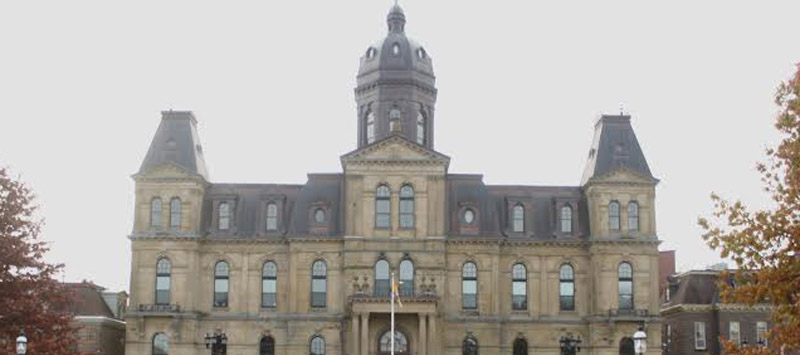The government of New Brunswick will provide free tuition or additional financial assistance to university students from families with a yearly income less than $60,000 through a new Tuition Access Bursary, Premier Brian Gallant announced Thursday morning.
“It’s definitely overdue, but it’s definitely also a historic step forward in terms of financial aid and the accessibility and affordability of post-secondary education here in New Brunswick,” said Lindsay Handren, director for the New Brunswick Student Alliance, which represents students in post-secondary institutions across the province.
The bursary will allow the provincial government to pay the difference between federal grants and the amount owing on an eligible students’ tuitions. Any cost of living expenses or additional expenses, such as books, will not be included.
Handren said the NBSA has helped the government to design the program. Consultations began after the budget announcement in February.
According to Handren, the application process for the bursary will be built into the existing student loan application process. Any full-time undergraduate living and attending post-secondary in New Brunswick from a low-income or middle-income family will receive the bursary.
Students from other provinces and international students will not be eligible.
“It also does nothing to help recent graduates who have a lot of debt to deal with,” said Handren. “That being said, studies have shown that aid does best up front and this is money going to students who need the most, when they need it the most. So we’re really happy about it.”
The plan will go into effect this fall for the 2016-2017 scholastic year.
The government and NBSA expect over 7,000 students across the province in publicly funded universities or colleges will benefit from the new bursary. However, operating grants to New Brunswick universities remain frozen and STU students can still expect their annual 10 per cent tuition increase.
Al Cusack is a student from outside the province and will not be benefiting from this new grant. But Cusack is still thrilled at the initiative taken by the government and hopes it will carry over to Nova Scotia in the future.
“I still think it’s fantastic because the amount of provinces that are moving towards making education more accessible, like half of the Atlantic provinces now, are setting a precedent,” said Cusack. “It’s making the statement that New Brunswick cares about higher education.”
Cusack said because the low and middle-income families are those who suffer most from the barrier tuition rates present, addressing their needs first is both fair and equitable.
Francine Landry, the Post-Secondary, Training and Labour minister of New Brunswick has also said during the announcement this “is the first step of a multi-phase plan to ensure that every New Brunswicker has an opportunity to reach their potential and contribute to the economic and social fabric of our province.”
Cusack said the Tuition Access Bursary was “as much as I could hope for right now… I’m looking forward to my expectations getting exceeded.”
Jeffrey Carleton, director of communications at St. Thomas University, said the administration still has questions on how the bursary will be implemented, but today, the university is optimistic.
“All of the process points will be looked after so the government can implement this right away, that’s pretty impressive,” said Carleton.
STU, like most post-secondary institutions across the province, has had a decline in enrollment over the past few years. Carleton said this problem is rooted in demographics, which the bursary is not likely to solve. However, the bursary may be able grow the participation rates in certain demographics.
Potential students who have not yet applied to university, may now also be enticed by the bursary. While the deadline for scholarships was March 1, applications are accepted right up until September.
“It should be interesting to see if it causes a spike or increase of applications at the universities,” said Carleton. “We’ll be able to answer that question come September.”
Carleton said according to information issued to STU by the government, the bursary will be accessible to all eligible students entering their first through final year of university in September.
“Right now, as of day one, the government looks like it’s being quite progressive, the government’s moved as quickly as they could and it’s a good piece of news for students and their families in New Brunswick,” Carleton said. “And that will be good news for St. Thomas.”

